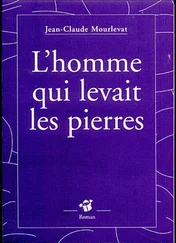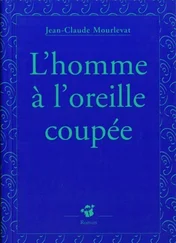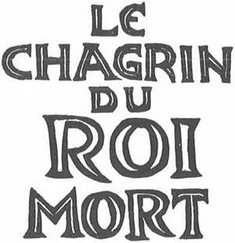Jean-Claude Mourlevat - Winter's End
Здесь есть возможность читать онлайн «Jean-Claude Mourlevat - Winter's End» весь текст электронной книги совершенно бесплатно (целиком полную версию без сокращений). В некоторых случаях можно слушать аудио, скачать через торрент в формате fb2 и присутствует краткое содержание. Год выпуска: 2010, ISBN: 2010, Издательство: Candlewick, Жанр: Старинная литература, на английском языке. Описание произведения, (предисловие) а так же отзывы посетителей доступны на портале библиотеки ЛибКат.
- Название:Winter's End
- Автор:
- Издательство:Candlewick
- Жанр:
- Год:2010
- ISBN:9780763651749
- Рейтинг книги:5 / 5. Голосов: 1
-
Избранное:Добавить в избранное
- Отзывы:
-
Ваша оценка:
- 100
- 1
- 2
- 3
- 4
- 5
Winter's End: краткое содержание, описание и аннотация
Предлагаем к чтению аннотацию, описание, краткое содержание или предисловие (зависит от того, что написал сам автор книги «Winter's End»). Если вы не нашли необходимую информацию о книге — напишите в комментариях, мы постараемся отыскать её.
Winter's End — читать онлайн бесплатно полную книгу (весь текст) целиком
Ниже представлен текст книги, разбитый по страницам. Система сохранения места последней прочитанной страницы, позволяет с удобством читать онлайн бесплатно книгу «Winter's End», без необходимости каждый раз заново искать на чём Вы остановились. Поставьте закладку, и сможете в любой момент перейти на страницу, на которой закончили чтение.
Интервал:
Закладка:
“A letter for Bart.”
“Yes, of course, but what was the letter about?”
“All in good time. Bart read it right away in the bathroom while I kept watch at the door. Like in your school, they never leave us in peace. When he came out, he was white as a sheet. ‘Aren’t you feeling well?’ I asked. ‘Who was writing to you?’
“‘My father,’ he said. ‘It’s a letter from my father. . . . I never even knew I had one! He wrote it to me fifteen years ago.’
“Over the next few days, Bart changed. He’s not the talkative sort, but he started questioning lots of our friends one by one. And it was always the same question he asked. ‘Do you remember your parents?’ They’d have turned around and thumped anyone else, but somehow people don’t turn on Bartolomeo Casal. It was odd: he’d go up to boys he hadn’t said a word to in three years and ask them straight out: ‘Do you remember your parents?’ Most of the time the answer was no. But if someone did say yes, he’d go on asking questions for hours.”
“What for?”
“To check up on something his father explained in the letter.”
“Meaning?”
“Bart told me in the end, and that’s the serious thing I wanted to tell you.”
“Go ahead.”
“We . . . how can I put this? We’re not ordinary orphans.”
“Not ordinary orphans?”
“No. Our parents all had something in common.”
“What?”
“They all fought against the Phalange organization when it seized power.”
Helen’s heart was in her mouth. In her seventeen years of life, she’d never been able to form any kind of idea of her parents. She’d often tried imagining what they were like, but in spite of all her efforts, they slipped away from her memory like a fish slipping out of your hands. Hearing someone mention them, even so vaguely, seemed unreal. She felt as if after all this time those two shadowy, ever-elusive figures were giving her a loving wave from infinitely far away. She pressed close to Milos’s shoulder to convince herself that all this was real: the rooftop where she was sitting, the pure, cold night all around her, and this calm, quiet boy on the point of revealing extraordinary secrets.
“I don’t understand. You mean they rounded us up and put us together because of our parents?”
“That’s right.”
“But why?”
“Because our parents all died at the same time, more or less.”
“You mean they were . . .”
“Murdered, yes.”
“Murdered? Who did it?”
Milos hesitated for a few seconds. “The Phalangists. Bart’s father describes them very simply: barbarians, he calls them. They seized power by force a little over fifteen years ago. It was a coup d’état. They arrested and assassinated anyone who dared to resist, wiped out all trace of them, banned any mention of their names, destroyed their works if they happened to be artists.”
“But Bart’s father must have escaped if he wrote that letter.”
“He was one of the Resistance leaders, and yes, he did manage to get away. In the letter he writes that he’s up near the peaks of the northern mountains, and so far he’s succeeded in eluding the Devils, the dog-men under the police chief, Mills. But he won’t get much farther, he says. He’s exhausted and his feet are frozen. And he says he’s giving the letter to a companion in the hope that someday it will end up in his son Bartolomeo’s hands.”
“It took fifteen years, but it arrived in the end!” marveled Helen. “Thanks to Basil!”
“Exactly. And at the end of the letter,” Milos went on, “Bart’s father tells him that while he was on the run, he met an extraordinary woman, a singer. Everyone loved and protected her. The barbarians couldn’t silence her — as long as she was able to sing, they feared her and her voice. Her name was Eva-Maria Bach, and she had a daughter, a little blond girl who looked exactly like her.”
“Milena,” Helen murmured.
“That’s right. Those barbarians tracked her mother down to the mountains where she’d gone with Bart’s father and a handful of other partisans. The dog-men were let loose on them . . .”
Helen shuddered. “My God! Surely Bart’s not going to tell Milena that, is he?”
“I don’t know.”
They said nothing for a few moments, and then Helen went on. “So all those people — I mean our parents — they’re dead? There’s nothing left of them?”
“No, nothing,” Milos said sadly. “There’s nothing left of them.” And then he added, very quietly, “Except us.”
His voice was strangely resonant in the clear night air. At that moment, perched side by side on the slate roof, they felt like the survivors of a terrible, long-ago disaster, two fragile and miraculous birds.
“I always knew Milena wasn’t ordinary,” said Helen, smiling. “She had that secret deep inside her — something greater than any of the rest of us had. It’s a unique gift. You only have to hear her sing to understand.”
“Bart’s not an ordinary boy either,” said Milos. “Those two were bound to meet. Remember the evening when we all met on the hill? They couldn’t take their eyes off each other! And on our way back to the boarding school, Bart stopped dead in the middle of the bridge and asked me, ‘Did you hear what she said? Her name’s Milena! It’s her!’ I knew at once that nothing would keep him away from her, not even the thought of sending an innocent person to the detention cell. It was stronger than anything else. We didn’t need to say any more. He just gave me a hug and he went off. When he’d gone a little way, he turned back and called, ‘We’ll meet again, Milos! We’ll meet again . . . somewhere else. We’ll all be together then, the living and the dead!’ And then he was gone. I was left alone on the bridge feeling like an idiot, just like you a few hours later.”
“They won’t be coming back, then?”
“They won’t be coming back.”
“But what about Catharina in her cell? We can’t leave her there to die!”
“You’re right. We have to get her out of there tonight. With the annual assembly, and what happened at the end of it, I don’t suppose supervision will be very tight.”
“There must be another boy in the detention cell in your school too.”
Milos dug both hands into his hair and then sighed deeply. “There was. But not anymore.”
“What do you mean? Did they let him out?”
“No, it was like this. A terrible thing happened. When Bart and I left the school last week for me to go and see my consoler, the supervisor picked a boy for punishment instead of us if we failed to come back. And guess what — he picked Basil. The poor guy found himself in the cell without doing anything wrong for once. All he wanted was to keep quiet and out of trouble! He was in there for five days and five nights, and on the Thursday morning I saw two men carrying his body out on a stretcher. His skull was all battered, and there was blood congealing on his face and shoulders. They loaded him into a van and took him away. I don’t know where. I think he couldn’t bear the idea of being punished unjustly. I think he went crazy with rage in that hole, and then flung himself at the door to kill himself. That’s what I work out happened. . . .”
Milos’s voice cracked. Helen turned to him, and thought his eyes were suspiciously bright for a boy who claimed to be primitive.
“Come on,” he said, pulling himself together. “We must find Catharina before she goes crazy too. Let’s get moving!”
They left the rope where it was on the roof and came back down through the skylight. The lock on the door at the far end of the loft didn’t stand up to Milos’s knife for long. They went down the stairs and into the hall where the assembly had been held. The Skunk, replete and dead drunk, had collapsed beside the wall, fast asleep with his mouth wide open. A plane crashing into the room wouldn’t have woken him. When Milos got a close-up view of the buffet — the old soak hadn’t been able to make any real inroads into it — he practically fainted.
Читать дальшеИнтервал:
Закладка:
Похожие книги на «Winter's End»
Представляем Вашему вниманию похожие книги на «Winter's End» списком для выбора. Мы отобрали схожую по названию и смыслу литературу в надежде предоставить читателям больше вариантов отыскать новые, интересные, ещё непрочитанные произведения.
Обсуждение, отзывы о книге «Winter's End» и просто собственные мнения читателей. Оставьте ваши комментарии, напишите, что Вы думаете о произведении, его смысле или главных героях. Укажите что конкретно понравилось, а что нет, и почему Вы так считаете.












